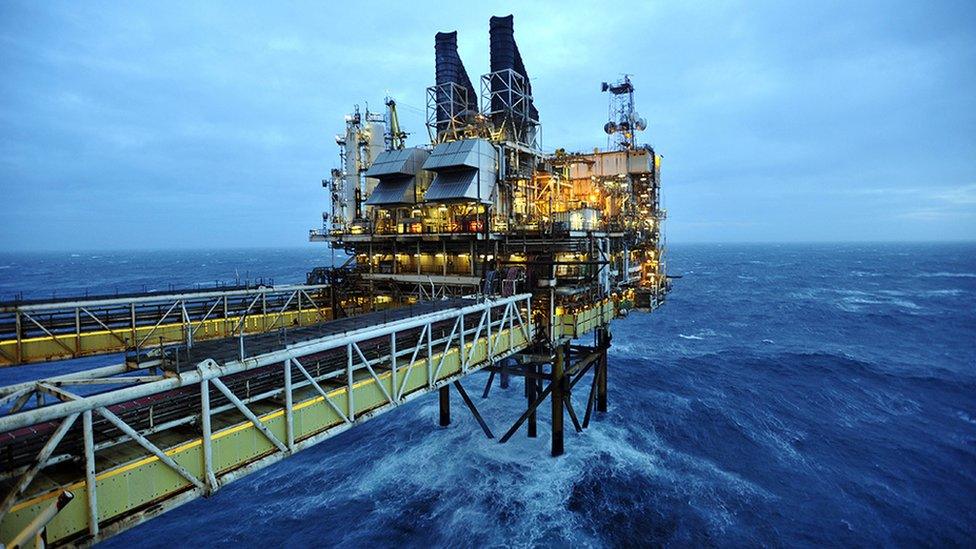Potential emissions revealed for controversial Jackdaw gas field
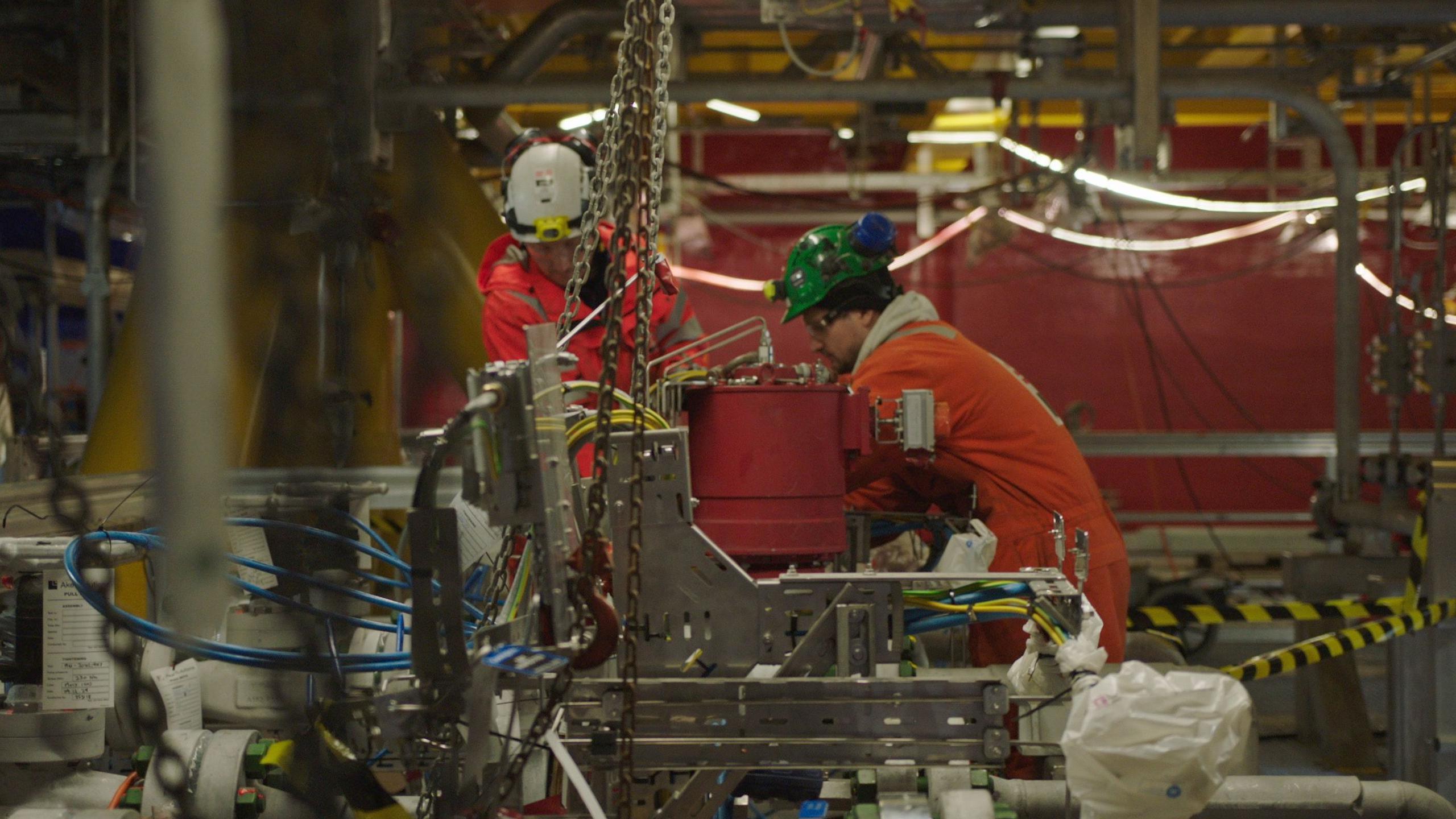
Shell has published details of the lifetime environmental cost of burning fuel from the Jackdaw field
- Published
Planet-warming greenhouse gases from the lifetime of the controversial Jackdaw gas field in the North Sea would be the equivalent of 90% of Scotland's emissions for 2023.
The Dutch oil giant Shell has published details of the environmental cost of burning fuel from the field over 11 years, should it be given approval.
An assessment of the plans, along with those for the Rosebank oil field off Shetland, had to be resubmitted after they were successfully challenged in court.
The company says the estimate is at the highest end of what's likely and still less than if the gas was imported from overseas.
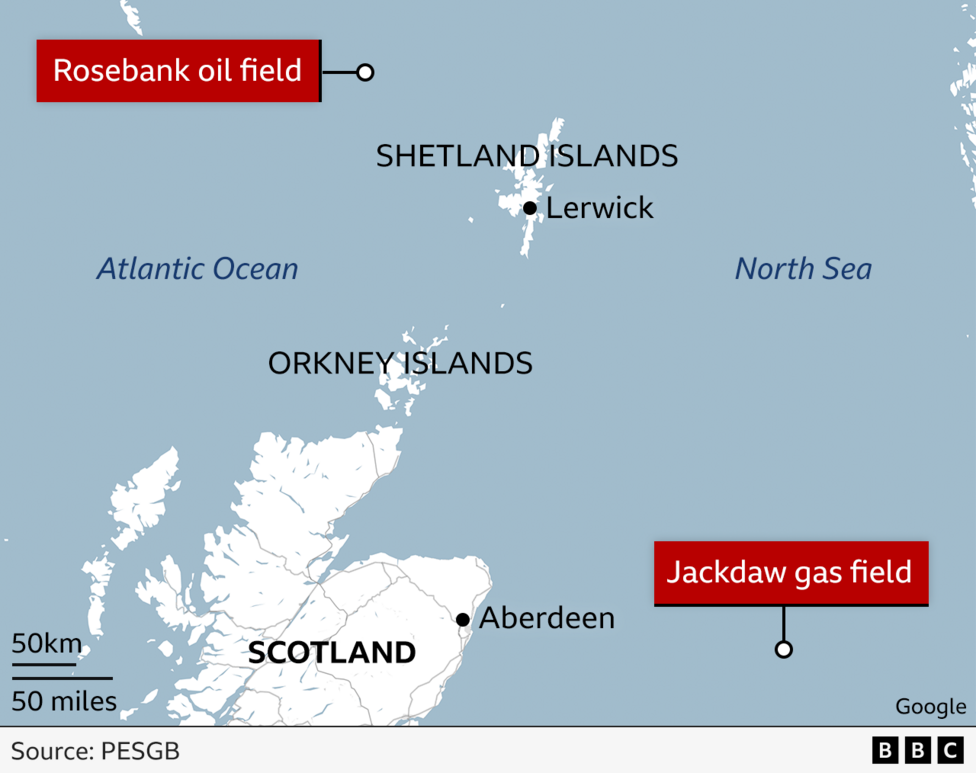
Total highest scenario emissions for 'Scope 3', which covers the end use of the fossil fuels produced, is equivalent to 35.8 million tonnes of carbon compared with Scotland's total emissions for 2023 of 39.6 million.
However Shell says the most likely levels of production would generate 23.6 million tonnes.
Most of that is expected to be emitted between 2028 and 2032 when production would be at its peak.
Shell says that equates to just 1.3% of the UK's fifth carbon budget - which runs between those years.
A carbon budget counts the total amount of greenhouse gases which can be emitted over a five year period, which allows for annual fluctuations caused primarily by the weather.
If approved, the gas will come ashore at the St Fergus gas terminal in Aberdeenshire where it will be processed before entering the gas transmission network.
In theory it could be used anywhere in the UK, though with another three gas terminals in England the majority is most likely to be used in Scotland.
Energy security
The emissions from Jackdaw are a fraction of those estimated for the Rosebank oil field, which is expected to emit almost 250 million tonnes over its lifetime.
Both projects are well through the construction phase but a judge ordered that production was not to commence until fresh environmental impact assessments had been considered by the UK government and regulators.
Those documents are now on the minister's desk awaiting a final decision over whether they can go ahead.
Consideration has to be given to the impact of the two fields on a legally-binding commitment to keep global temperature rises to below 2C.
Publication of the assessment from Shell comes as the latest UN climate change negotiations - COP30 - draw to a close in Brazil.
A spokesperson for Shell said the UK will need gas "for many years to come" and that the Jackdaw field will provide enough fuel to heat 1.4 million homes.
They added: "Producing gas here in the UK generates less emissions than shipping it from overseas, while strengthening energy security, supporting local jobs and contributing to the UK economy.
"To be clear, the UK will consume this gas, wherever it is produced. Homegrown energy projects like Jackdaw can help to reduce overall emissions."
Commenting on the report, Greenpeace UK's co-executive director Areeba Hamid said: "Now our legal win has forced Shell to reveal the sheer scale of pollution expected from Jackdaw, it's looking more and more like a dud project for the UK.
"The gas from Jackdaw won't take a penny off our energy bills but will generate as many emissions as 20 million cars driving on UK roads for a year. This will fuel more extreme weather like the devastating droughts, wildfires and floods we have seen this year, leaving ordinary people to pick up the bill.
"It's decision-time for ministers. If they approve Jackdaw, it'll be Shell's profit, our loss."
- Published15 October
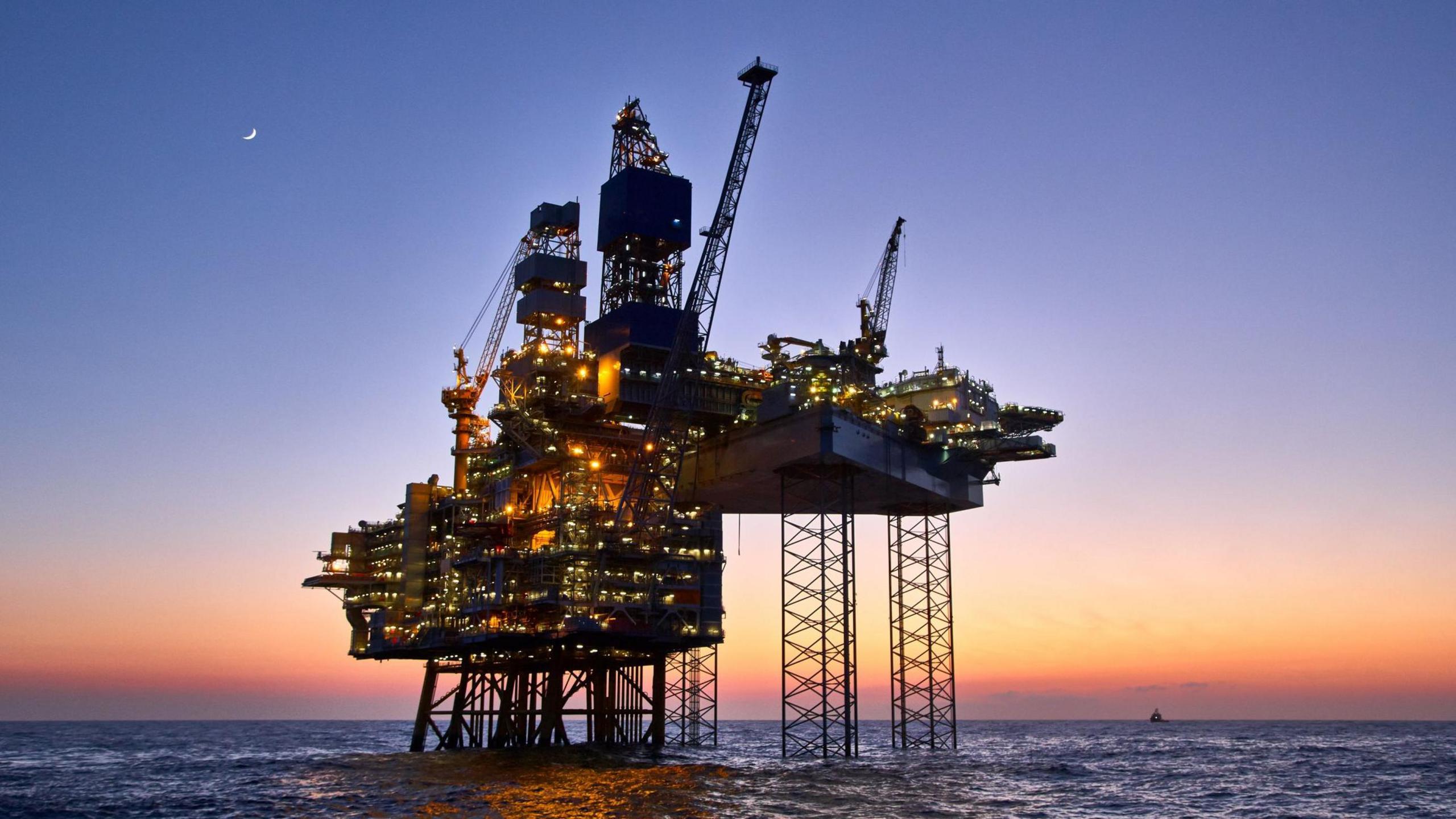
- Published30 January
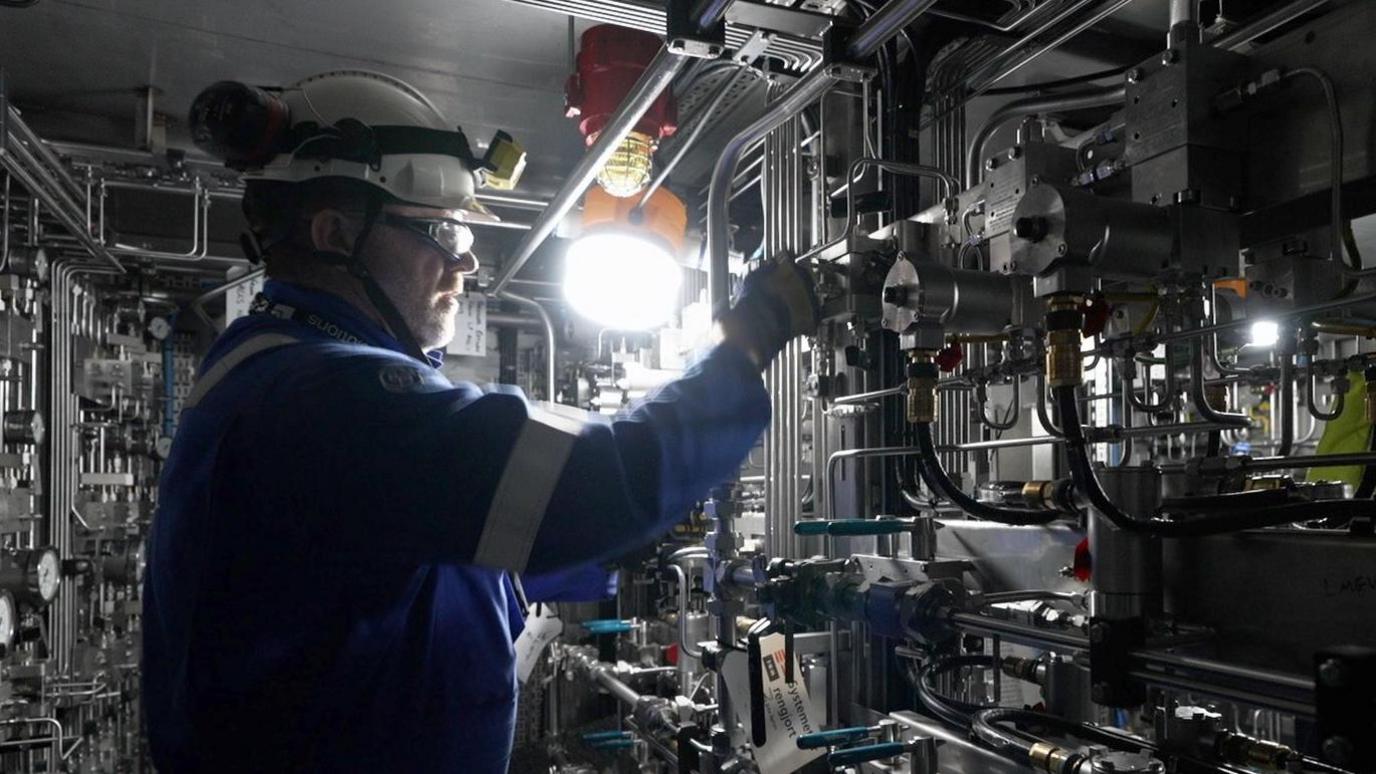
- Published27 September 2023
